Joe Biden warns Israel against Rafah invasion as air strikes begin, Hamas says it has agreed to ceasefire
Israel issued evacuation orders and carried out intense air strikes on the crowded Gaza city, as Hamas said it had accepted a deal to halt the war.
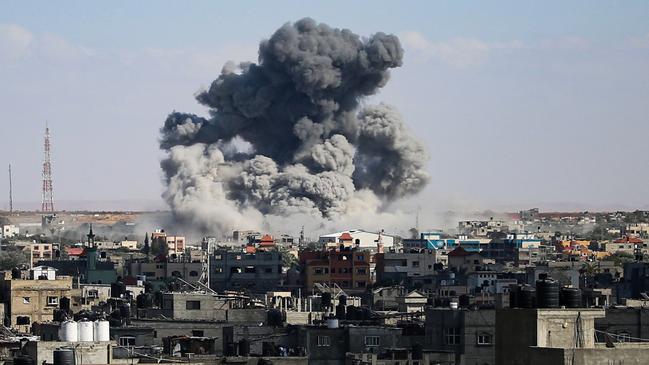
US President Joe Biden, seeking to push a Gaza ceasefire, on Monday warned Prime Minister Benjamin Netanyahu against invading Rafah as Israel defiantly issued evacuation orders and carried out intense air strikes on the crowded Gaza city.
The US said it was reviewing a response from Hamas, which said it has accepted a deal to halt seven months of war and free hostages, with CIA Director Bill Burns in the region to negotiate through Arab allies.
Biden told Netanyahu in April that invading Rafah would be a “mistake,” and Secretary of State Antony Blinken told him last week in Jerusalem that there should be no offensive due to the safety of more than one million civilians sheltering there.
“The president reiterated his clear position on Rafah,” the White House said in a brief readout of the call.
State Department spokesman Matthew Miller said afterwards that the United States has not yet “seen a humanitarian plan that is credible and that is implementable.”
“We believe a military operation in Rafah right now would dramatically increase the suffering of the Palestinian people (and) would lead to an increase in loss of civilian life,” Miller told reporters.
But hours after the call between Biden and Netanyahu, Israel issued its second warning in a day for Palestinians to evacuate Rafah and said it was preparing for a ground invasion.
Israel carried out intense air strikes on Rafah late Monday which were virtually continuous for 30 minutes, an AFP correspondent said.
Israel has vowed to eliminate Hamas following its October 7 attack, the deadliest ever experienced by Israel.
Military spokesman Daniel Hagari said in a broadcast address that Israeli aircraft hit “more than 50 terror targets” around Rafah on Monday.
UN Secretary-General Antonio Guterres said on Monday that a ground invasion of Rafah would be “intolerable”, and called on Israel and Hamas “to go an extra mile” to reach a ceasefire deal.
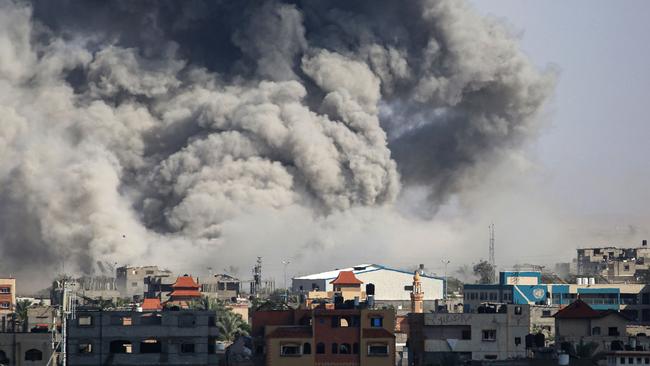
In one area of progress, the United States said Netanyahu agreed to keep aid flowing through Kerem Shalom, the key crossing between Gaza and Israel. Four Israeli soldiers were killed in an attack at the crossing on Sunday claimed by the armed wing of Hamas.
The Biden administration said that Burns was discussing the Hamas response in the region and did not immediately characterise it, but voiced hope for an agreement.
“We continue to believe that a hostage deal is in the best interests of the Israeli people; it’s in the best interests of the Palestinian people” Miller said.
Biden is under growing domestic pressure about the war in Gaza in an election year, with pro-Palestinian protests roiling US university campuses.
New York’s prestigious Columbia University, which has been at the heart of the protests, said Monday it had cancelled its main graduation ceremony next week.
Air strikes launched
Israel began a series of air strikes on eastern Rafah as it continued to prepare for its long-awaited ground invasion of Rafah, the last Hamas stronghold in Gaza, despite Hamas accepting a truce proposal from Qatar and Egypt.
The plans for a ground offensive come despite warnings by the West, including the US and Australia, that the attack could lead to massive civilian casualties and further alienate Israel on the world stage.
Israel earlier ordered the partial evacuation of civilians from eastern Rafah in a move widely interpreted as signalling an imminent ground invasion of the southern city, where an estimated 1.4 million displaced Palestinians are sheltering.
Israel did not confirm whether the partial evacuation was a precursor to a ground invasion, but it comes amid renewed warnings from Mr Netanyahu that Israeli forces would attack Rafah, regardless of whether a hostage deal with Hamas succeeded.
The Israeli Defence Forces (IDF) called for civilians in parts of Rafah to “evacuate immediately” to a humanitarian zone, saying they planned to operate with “extreme force” in those areas. IDF spokesman Lieutenant Colonel Nadav Shoshani said about 100,000 people were being ordered to move to nearby Israel-declared humanitarian zones.
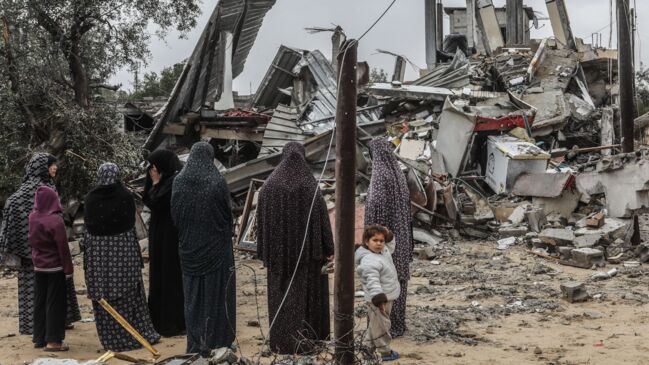
He claimed that Israel was preparing a “limited scope operation”, but did not confirm whether this was the start of a larger invasion. He said Israel was not calling for a “wide-scale evacuation of Rafah”, and that “this is a very specific scoped operation at the moment to move people out of harm’s way”.
Hamas says it has accepted ceasefire deal
Hours after Israel ordered the evacuation, Hamas announced it had agreed a ceasefire proposal proposed by Qatar and Egypt.
In a statement, Hamas said its leader Ismail Haniyeh had informed the two mediators “of Hamas’s approval of their proposal regarding a ceasefire agreement”.
Senior Hamas member Khalil al-Hayya told al Jazeera the proposal includes a three-stage truce with the goal of a lasting ceasefire.
Hayya told the broadcaster each phase would last 42 days, and the deal includes plans for a complete Israeli withdrawal from Gaza, the return of Palestinians displaced by the ongoing war, an exchange of hostages and prisoners and the aim of a “permanent ceasefire”.
Jerusalem said it would send a delegation to mediators to discuss the proposal but said it was not the “framework” Israel had previously agreed to.
“Even though the Hamas proposal is far from Israel’s essential demands, Israel will send a working-level delegation to the mediators,” Prime Minister Benjamin Netanyahu’s office said in a statement after a war cabinet meeting.
“The war cabinet has unanimously decided that Israel is continuing the operation in Rafah to exert military pressure on Hamas in order to advance the release of our hostages and the other objectives of the war,” the statement also said.
Israel says that Rafah, the sole crossing between Gaza and Egypt, is home to thousands of militants, the last organised Hamas resistance in Gaza, and that it cannot achieve its aim of wiping out the terrorist group without attacking the city.
But the city is swollen with displaced Gazans who have fled the fighting in the now-destroyed northern Gaza and who have nowhere to go for safety.
Any invasion of Rafah risks angering the US, which has warned Israel not to attack without a viable plan to protect civilians, saying that Israel had not yet produced such a plan.
Foreign Minister Penny Wong has said a ground offensive in Rafah was “unjustifiable”. “Australia, the G7 and so many countries have called on the Netanyahu Government to change course. The Foreign Minister has made clear Australia’s view that Israel should not go down this path.,” Senator Wong’s spokeswoman said on Tuesday. Israel’s call for the evacuation of civilians comes after a new impasse in Qatar-brokered negotiations between Israel and Hamas for the release of more than 30 Israeli hostages in exchange for a ceasefire.
But hopes of a hostage deal over the weekend collapsed after Hamas demanded any hostage deal be accompanied by a permanent ceasefire, rather than a temporary one as Israel insisted upon.
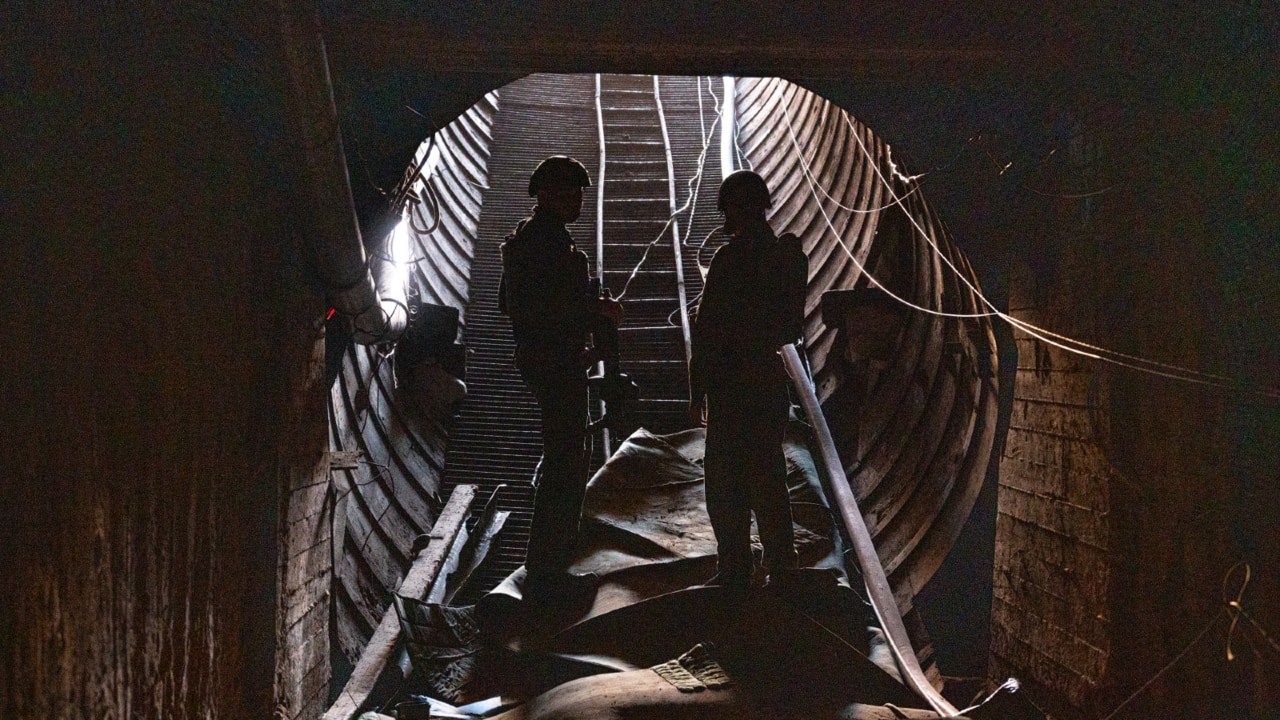
The IDF said posters, text messages, phone calls and media announcements would be used as part of a call to “encourage … the gradual movement of civilians in the specified areas”.
However, it warned that even those areas might not be entirely safe because Hamas was known to fire from those locations.
Israeli radio reports claimed that evacuees would be directed to tent cities in nearby Khan Younis and al-Muwasi.
The IDF did not place a timeframe on the evacuations or indicate whether larger evacuations might follow.
Mr Netanyahu has said for months that Israel would attack Rafah in order to wipe out Hamas, but he has stalled the invasion for several months now in the face of strong opposition to the invasion from Israel’s allies.
Mr Netanyahu claims that if Rafah is not attacked, then Hamas will be able to regroup and regenerate over time, posing a future military threat to Israel.
“If Israel is forced to stand alone, Israel will stand alone,” he said at the weekend.
“But we know we are not alone because countless decent people around the world support our just cause. And I say to you, we will defeat our genocidal enemies. Never again is now!”
Additional reporting: AFP

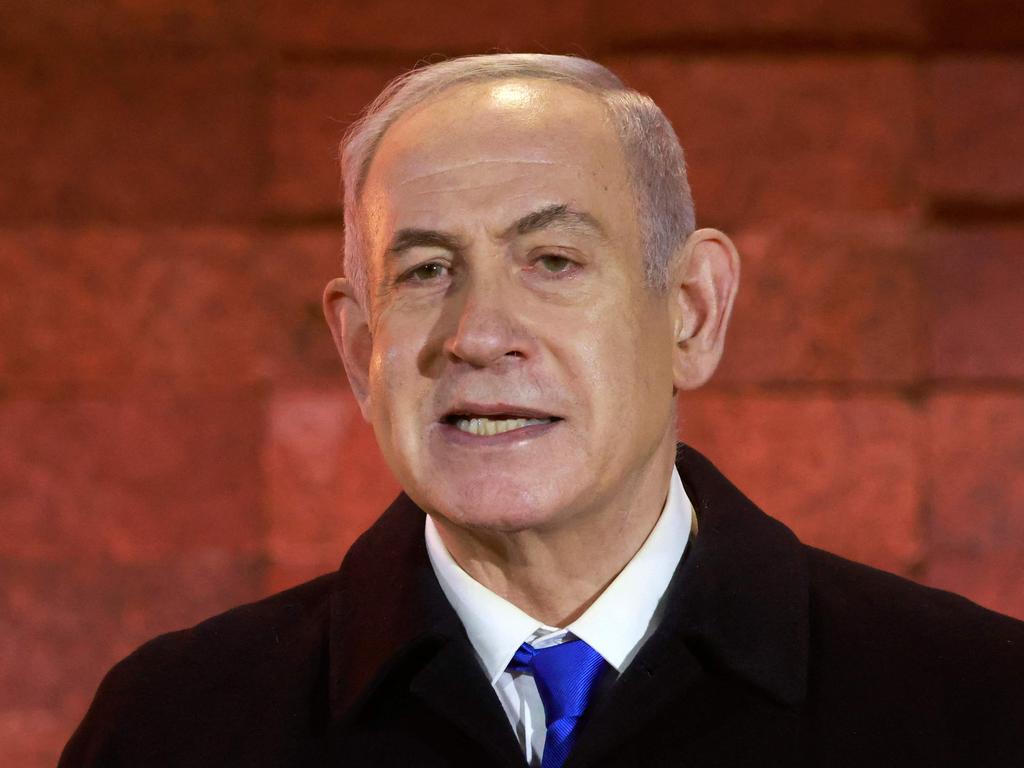


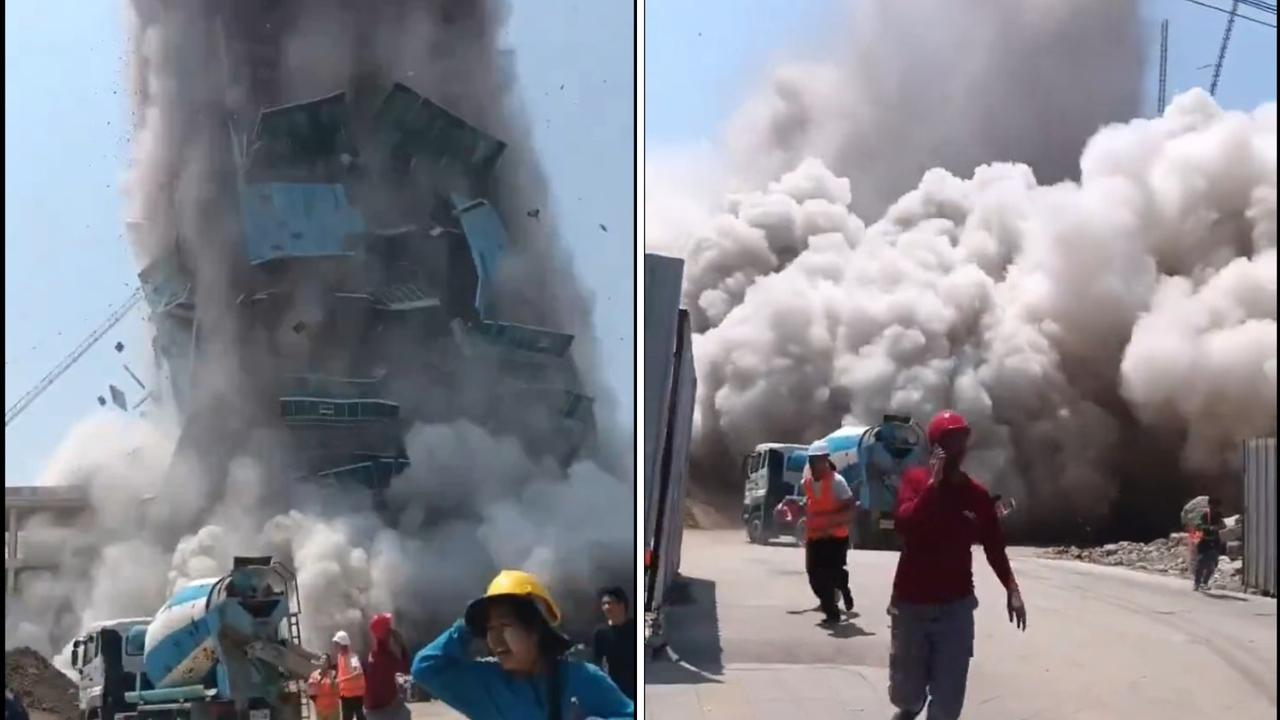
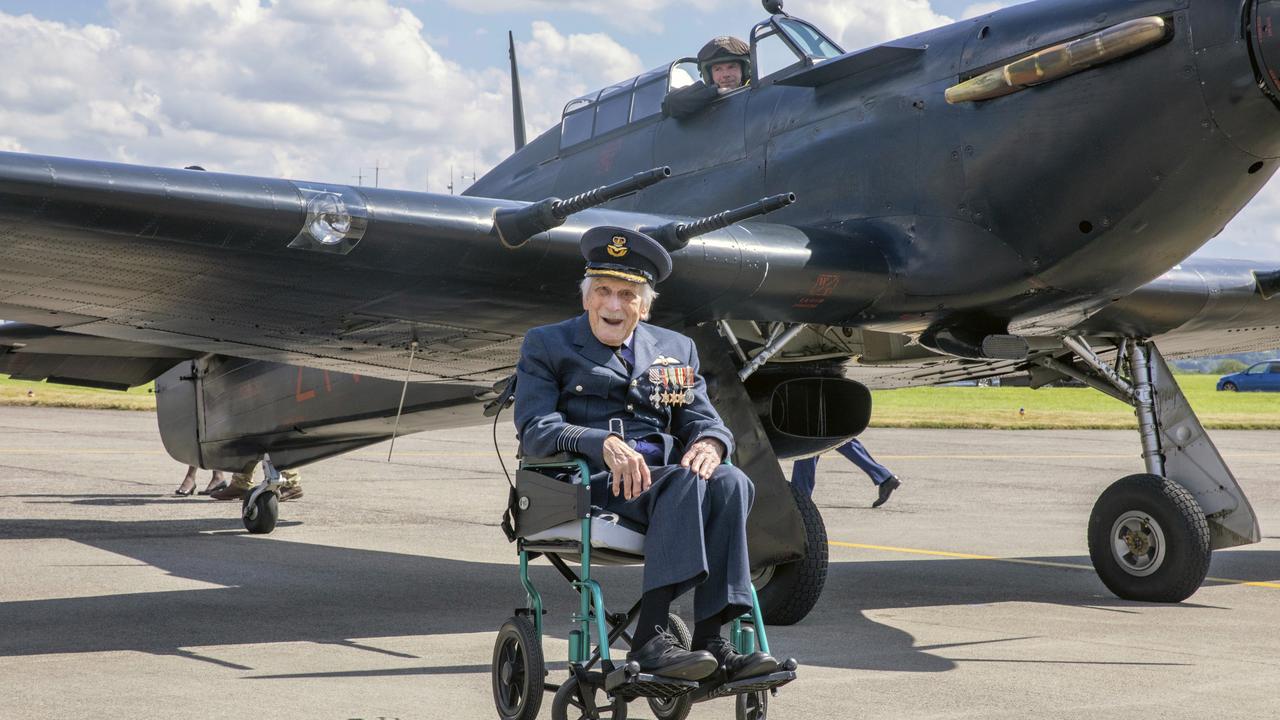
To join the conversation, please log in. Don't have an account? Register
Join the conversation, you are commenting as Logout